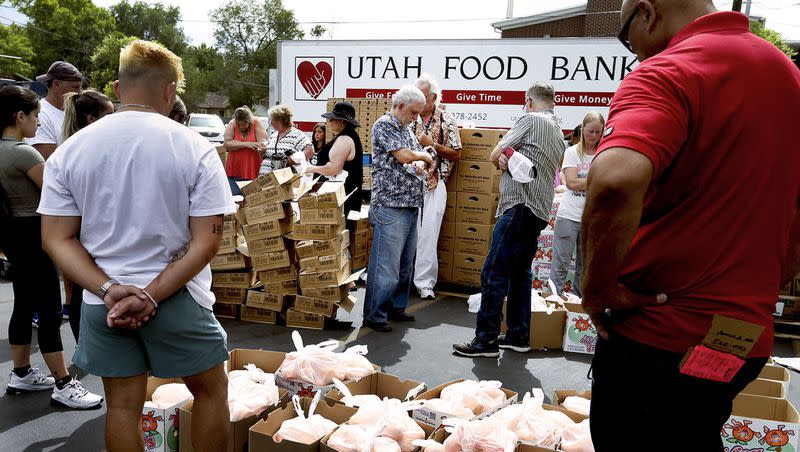Do faith groups have a legal right to feed the hungry?

Micah’s Way ministry in Santa Ana, California, believes God calls Christians to feed and serve the poor and hungry.
They believe it so strongly that they’ve filed a federal lawsuit over the city’s efforts to limit where and how they do this work.
The lawsuit focuses on a resource center run by Micah’s Way in Santa Ana’s professional district. The Christian group uses the site to help members of the homeless community and low-income residents with problems related to identification documents and mail. Recipients of these services are also often offered a snack and hot drink.
Related
City officials argue that Micah’s Way is violating Santa Ana’s zoning code by providing food in the professional district. They say the ministry is misusing its building and that food service is not core to its religious mission.
“Micah’s Way has been using its administrative office to distribute food in an area where this activity isn’t permitted,” city spokesman Paul Eakins said in a statement to USA Today. “This has impacted the adjacent residential neighborhood, resulting in multiple complaints.”
But Micah’s Way argues that the city is unlawfully interfering with religious exercise and unfairly targeting a Christian group. Officials haven’t cracked down on businesses in the same neighborhood that provide clients with coffee or snacks, said Ed Connor, an attorney for the ministry, to USA Today.
“Why aren’t you going after everybody that violates the zoning code because they’re handing out food?” he said.
The federal government gets involved
On Wednesday, the U.S. Department of Justice got involved in the case by filing a “statement of interest” in support of Micah’s Way. Officials wrote that feeding the hungry likely represented a form of protected religious exercise under the law.
“Many faith-based organizations across the country are on the front lines serving the needs of people experiencing homelessness. The Justice Department is committed to enforcing federal civil rights laws to ensure that all religious groups can freely exercise their religious beliefs,” said Assistant Attorney General Kristen Clarke of the Justice Department’s Civil Rights Division in a press release.
The Justice Department’s statement of interest highlighted protections offered to faith groups under the Religious Land Use and Institutionalized Persons Act. The law empowers prisoners to seek out reasonable religious accommodations and prevents city officials from using zoning laws to interfere with religious activity, among other things.
The Religious Land Use and Institutionalized Persons Act matters in the Santa Ana case because city officials cited zoning rules to justify their actions.
“The city is threatening fines, saying Micah’s Way is violating zoning rules by handing out food and drink in a professional district,” USA Today reported.
The homelessness crisis and religion
Although unique, the legal battle in Santa Ana has much in common with a few other recent conflicts.
For example, a church in Oregon sued its city council last year after government officials moved to limit the number of free meals the congregation could serve in a week.
The lawsuit claimed newly imposed restrictions on “benevolent meal service” interfered with the church’s ability to live out its religious beliefs.
“When nearly every other church in the area suspended their free-meal services during the pandemic, St. Timothy’s expanded its program and provided coronavirus testing and hosted vaccine clinics,” The Washington Post reported in February 2022.
That article, as well as this week’s coverage of the situation in Santa Ana, highlighted increasingly contentious debates over religion’s role in efforts to resolve America’s homelessness crisis.
Government officials often encourage religious institutions to help with the provision of social services, but then refuse to offer support if and when residents complain about homeless men and women spending more of their days near those institutions, according to recent news reports.
In general, cities are sending mixed messages about private efforts to reduce homelessness, USA Today reported.
“In Arizona, a woman was arrested (last year) for feeding homeless people without a proper permit,” the article said.
The USA Today article noted that the California lawsuit is still in its early stages. The U.S. District Court for the Central District of California is currently considering Santa Ana’s motion to dismiss the case.

